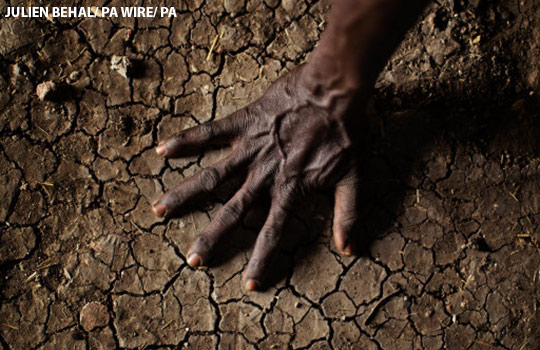 We should accept that humanity is dying and switch from cure to palliation—just as wise patients do at the end of their lives. This is the core of an argument from Alex Jadad, a palliative care physician and magician, and Murray Enkin, a retired obstetrician in his 90s who has just survived a major heart attack
We should accept that humanity is dying and switch from cure to palliation—just as wise patients do at the end of their lives. This is the core of an argument from Alex Jadad, a palliative care physician and magician, and Murray Enkin, a retired obstetrician in his 90s who has just survived a major heart attack
Switching from attempts at cure to palliation is almost always of benefit to individual patients, and famously it may even lead to them living longer. But doctors, patients, and patients’ families find it hard to make the switch, and it’s regularly made later than would be best for the patient.
My response on reading Jadad and Enkin’s article was “how sensible and far sighted,” but incredulity or complete inability to engage with the idea seems to be a commoner reaction. As I’ve argued before (and the philosopher John Gray argues much more cogently), far from accepting decline we are programmed to think progress. No politician can talk of “planned decline” and get elected. Everything will be better; all shall have prizes; put out more flags. We have never quite shed the idea that we are made in God’s image, that we are the climax of evolution. In fact, we are a highly imperfect species that has managed to destroy its habitat—a prelude to extinction.
Few can deny that our planet is sick. I’ve blogged about this before:
“The biggest threat to the future of health is that we have almost destroyed our planet. The Stockholm Resilience Centre defines nine planetary boundaries, which characterise the circumstances in which we can enjoy a flourishing civilisation. We have crossed five of these boundaries: extinction rates, climate change, land use change, phosphorous and nitrogen cycles, and ocean acidification; and we are at the limits of three others: freshwater use, pollution by novel agents, and atmospheric aerosol loading.
So we are at the limits of what the earth can take, yet the global population is rising and people are expecting a higher standard of living. The global population is expected to grow from seven billion now to over nine billion by the middle of the century. If everybody lived as many poor people in Africa and South Asia live then we could get by with one planet, but if everybody lived as people live in North America we would need five planets—or as people live in Western Europe three planets. People in North America and Western Europe are reducing their energy consumption and ecological footprint—but not by much and they are a small proportion of the global population. Most people are increasing their consumption and ecological footprint and there are more people—so we don’t have enough earths.”
But, as Jadad and Enkin argue, these “are really only symptoms, while the real underlying pathology is the zealous overvaluation and overprotection of our current territory, beliefs, ideologies, and way of life.” They continue: “What if we admitted that human extinction, within a few generations, is the most likely scenario?” Failure to make the admission means that we go on with treatments that will make us worse.
This is the same admission that dying patients, their families, and their carers must make. It’s hard, impossible for many. We don’t lack for offers of cure. The religious believe God will save us—or at least whisk the righteous away to Heaven. Scientists argue that technology can save us; if all else fails a small band can escape to other planets. Economists think that as the costs of planetary destruction rise self-interest will force us to change radically. Even my green friends, with terror in their souls, are working hard to construct a sustainable future.
But these are false prophets, akin to doctors offering miracle cures. Better, argue Jadad and Enkin, “to accept the inevitable . . . use the resources available to us, and learn to make our remaining time more comfortable, more positive, and more enjoyable.” They emphasise to me in an email that they as individuals find “acceptance of our mortality, unimportance, ephemeral nature, infinite ignorance, and futility to be very liberating.” I find the same.
Most of their article discusses how those resources might be better used, outlining macro-initiatives (major transfers of funds, adopting frugality rather than growth, mass production of affordable homes) and micro-initiatives (in Alaska, India, Bangladesh, Sri Lanka, and cities across the globe).
The central point is that palliation has different objectives from cure; it’s about relieving symptoms and enhancing joy in the life that remains rather than using dangerous and toxic technologies (surgery and drugs for individuals, or war, planetary engineering, and regime change for humankind) in pursuit of a cure that will never come. Palliation allows more imaginative interventions.
But none of those more imaginative interventions can come about until patients, families, and carers accept that death is close and inevitable. Can humanity (that’s you and me) accept that extinction is close and change our thinking?
Richard Smith was the editor of The BMJ until 2004.
Competing interest: None declared.
